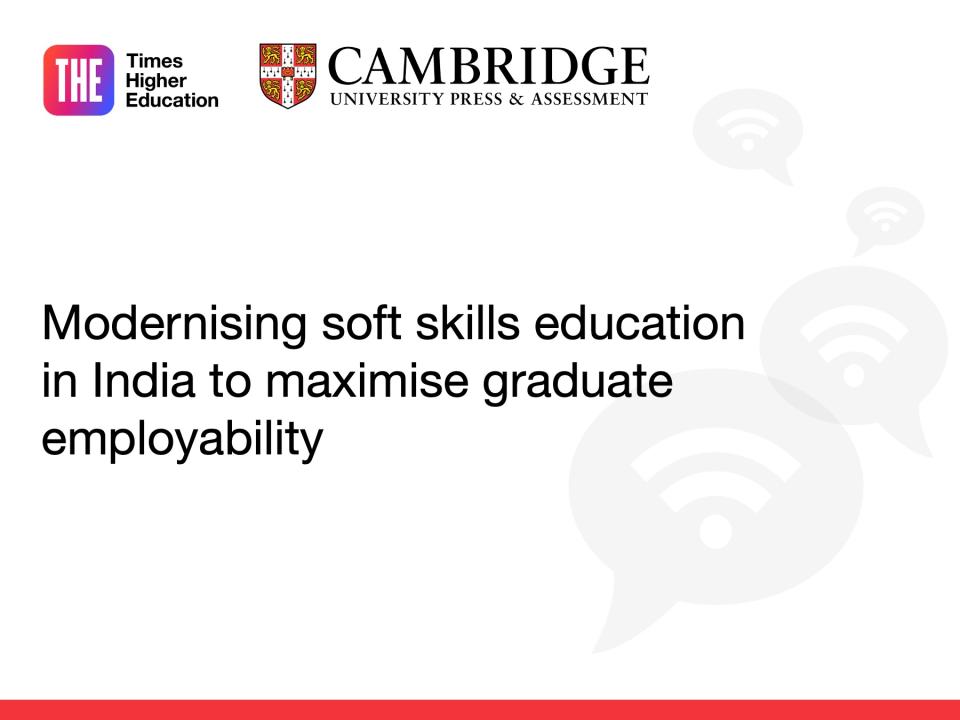To maximise and optimise graduate employability, Indian universities are beginning to integrate soft skills into their curricula. The aim is to create graduates who have a broader and more adaptable skillset, something that is essential for the fast-changing world of work.
A webinar held in partnership between Times Higher Education and Cambridge University Press & Assessment brought together a panel of experts from academia and industry from across India to discuss what else is required to modernise the country’s soft skills education.
A poll taken during the webinar found that while employability skills were considered the most important factor for higher education institutions to maximise graduate employability, only half of attendees from a university were currently teaching employability skills to students.
The panel agreed that more solutions are needed. The Cambridge Employability Skills module is one offering that can help universities integrate soft skills into their curricula. The module is comprised of eight categories of employability skills, explained Jasmin Silver, freelancer educational consultant and researcher. The module includes units such as communication, innovation and problem-solving, critical thinking and decision-making.
The framework is based on extensive research by Cambridge into employer needs and is aligned with the Employability Skills Framework for ELT report . The framework allows teachers to gain a deeper understanding of what each of the skills involves and integrate them more systematically into their teaching.
It is necessary to not only equip students with soft skills but also to teach them to apply these skills in real-life scenarios. “Employers want you to demonstrate those skills. They don't want you to [just] mouth the theory of how to handle a conflict,” said T.K. Arunachalam, business head (English) at Cambridge University Press & Assessment.
Consequently, efforts must be made to maximise students’ exposure to industry. Vinith Kumar Nair, associate director of the Centre for Accreditations, Rankings and Eminence at Amrita Vishwa Vidyapeetham, explained that the university was careful to integrate close connections with industry into the academic calendar. Nair explained that this enhances the success of students’ experiential learning by increasing their exposure to real-life collaboration.
Developing interpersonal skills is at the core of many workplace experiences. Universities must help students prepare for this by improving their communication skills. “If you can't read language, you can't read people…[It is] not just about making sense of text, it’s also about understanding human communication,” said Saikat Majumdar, professor of English and creative writing at Ashoka University.
The panel:
- T.K. Arunachalam, business head (English), Cambridge University Press & Assessment
- Gitanjali Goswami, branded content manager (APAC), Times Higher Education (chair)
- Saikat Majumdar, professor of English and creative writing, Ashoka University
- Vinith Kumar Nair, associate director of the Centre for Accreditations, Rankings and Eminence, Amrita Vishwa Vidyapeetham
- Jasmin Silver, freelancer educational consultant and researcher
Watch the webinar on demand above or on the THE Connect YouTube channel.
Find out more about employability from Cambridge University Press & Assessment.


comment